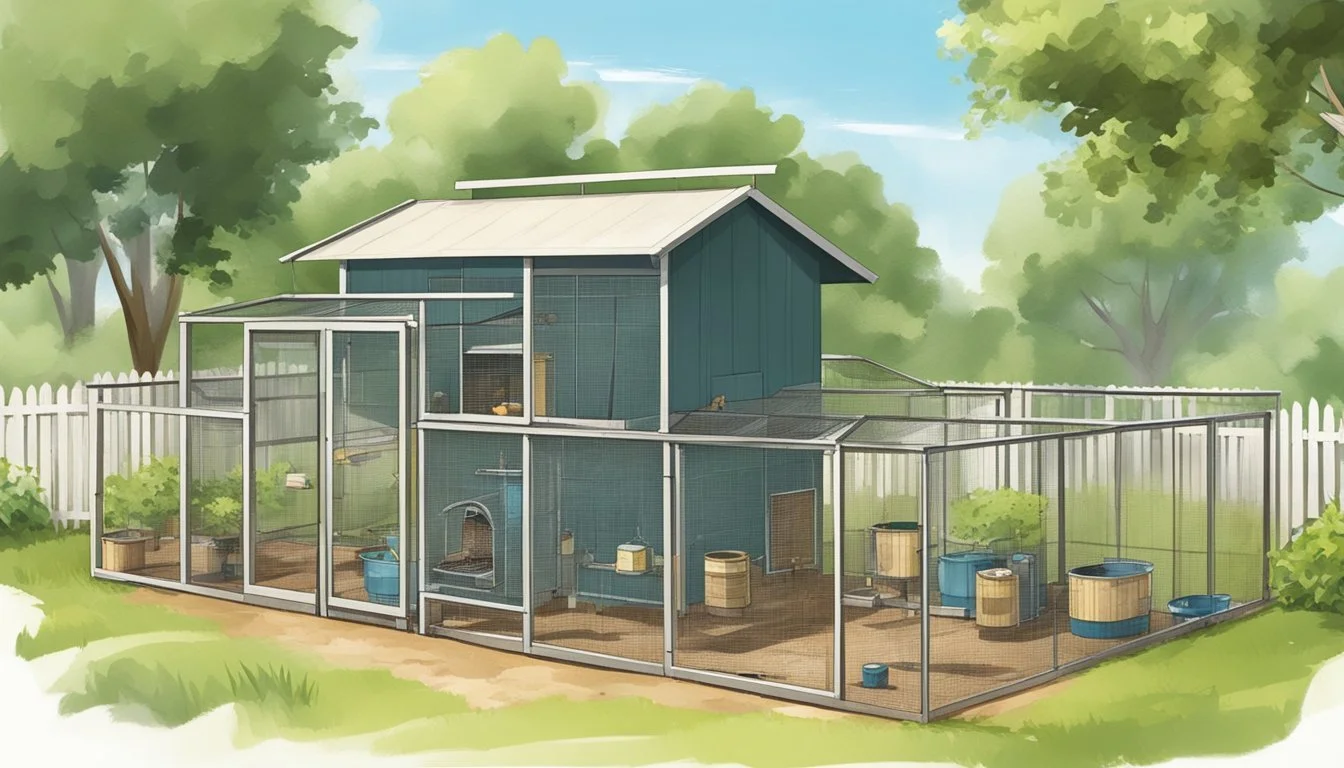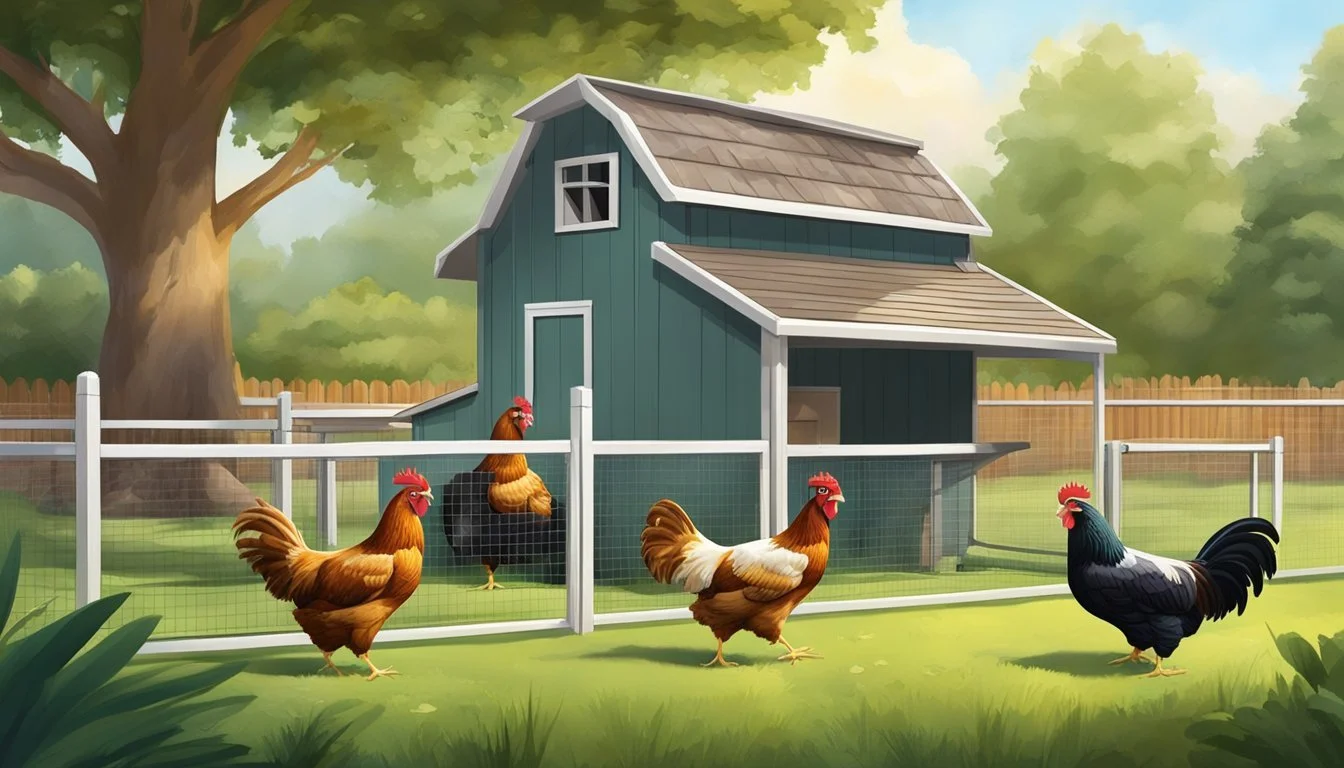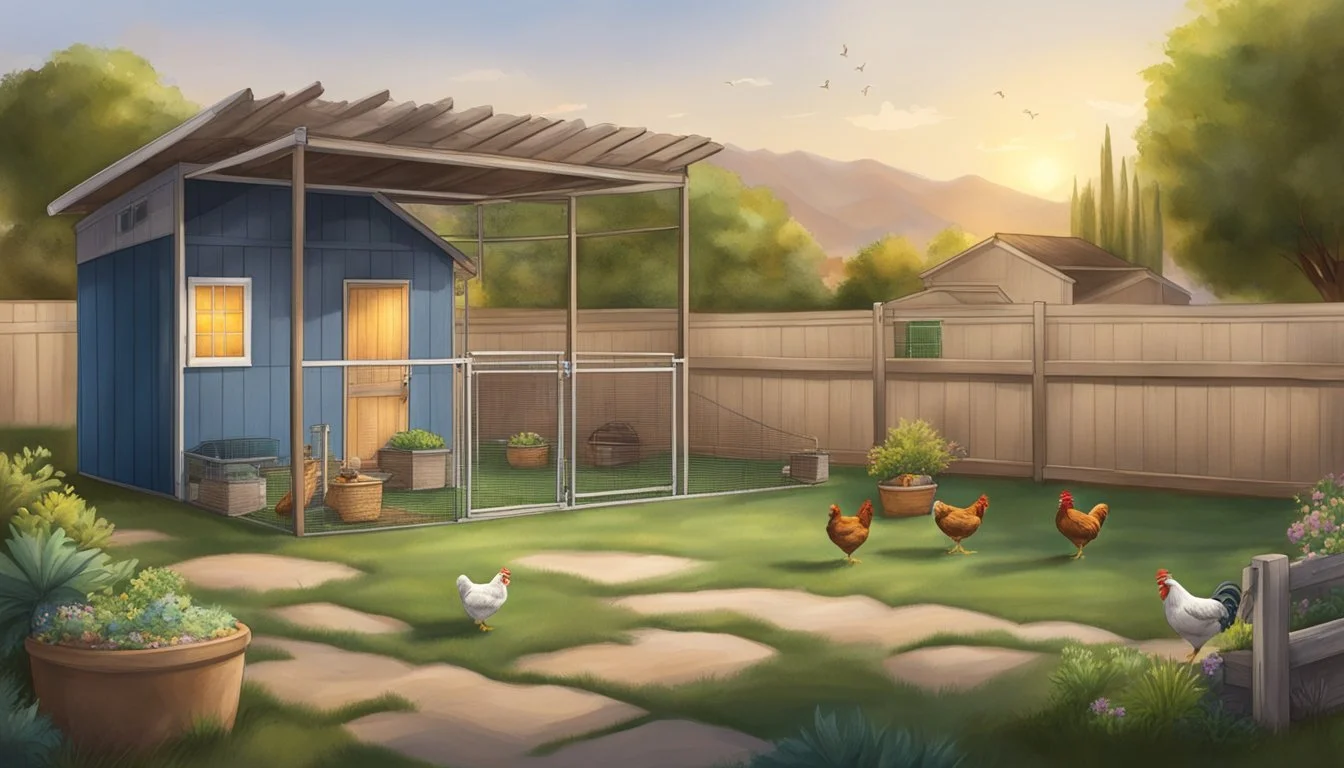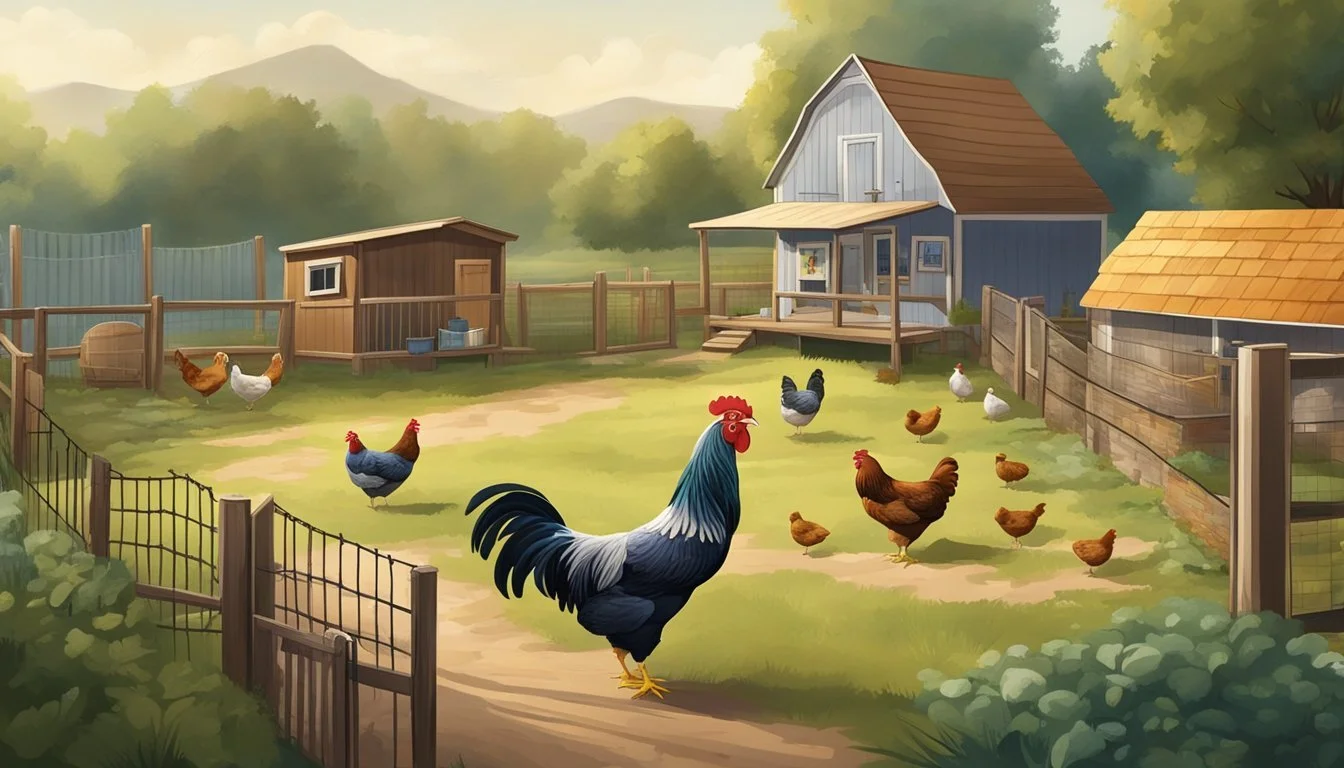Keeping Backyard Chickens in Jurupa Valley, CA
Essential Guidelines for Residents
Residents of Jurupa Valley, California who seek to embrace the wholesome hobby of raising backyard chickens will find a welcoming, albeit regulated, environment. The city's Municipal Code lays out clear guidelines designed to balance the interests of urban poultry enthusiasts with the wellbeing of the community. Therefore, it’s paramount for potential chicken owners to acquaint themselves with the city's regulations to ensure they adhere to local laws, which help to maintain peace and public health.
Engaging in the practice of raising chickens not only serves as a rewarding pastime but also provides households with a supply of fresh eggs. In Jurupa Valley, like in many other urban settings, there are specific stipulations that govern the keeping of chickens, with efforts to regulate noise, space, and the proper care of the animals. Understanding and following these policies enables residents to participate in this eco-friendly activity without disrupting the tranquility of the neighborhood.
It is essential to note that while the city permits the keeping of chickens, prospective owners should confirm the latest regulations regarding permits, coop structure, and the number of chickens allowed. The goal is to ensure harmony between chicken owners and non-owners, prevent any nuisance, and protect the animals’ welfare. As such, any resident looking to start raising backyard chickens should first consult the Jurupa Valley Municipal Code and secure the proper permissions if necessary, to join the growing community of urban poultry keepers.
Understanding Local Chicken Laws
In Jurupa Valley, CA, the local government has established specific laws pertaining to the keeping of backyard chickens, which include permit requirements, zoning restrictions, and key ordinances. Residents must familiarize themselves with these regulations to ensure compliance.
Key Ordinances and Restrictions
The Riverside County ordinances dictate that residents are allowed to keep chickens; however, the number permitted, and the conditions under which they are kept are strictly regulated. Roosters must be housed in an acoustical structure at night to prevent noise disturbances. There are also restrictions on the proximity of chicken coops to neighboring dwellings to address potential health and nuisance concerns.
Permit Requirements
Jurupa Valley's regulations require residents to obtain a permit for the keeping of roosters. For up to six roosters, a permit is necessary, although there is no fee. Owning seven to ten roosters incurs a $500 annual permit fee. It is essential to contact the city's Zoning Office for the latest requirements and to secure the proper documentation.
Zoning Information Specific to Jurupa Valley
Zoning regulations are critical for residents to understand before starting a backyard chicken coop. The Zoning Office in Jurupa Valley can provide specific information regarding the zones where residents can legally keep chickens. These local zoning laws help ensure that chicken keeping is done in a manner that respects both urban planning considerations and the rights of neighbors.
Preparation for Raising Chickens
Before diving into backyard chicken farming in Jurupa Valley, CA, it is essential to select an appropriate breed, establish a secure and comfortable coop, and ensure protection against potential predators.
Choosing the Right Breed
Selecting the right chicken breed depends on whether the priority is egg production, meat, or keeping them as pets. For consistent egg-laying, breeds like the Plymouth Rock or Rhode Island Red are robust options. Those interested in meat may consider the Cornish Cross for its rapid growth rate. For family-friendly pets, the Silkie is known for its calm temperament.
Setting Up Your Coop
When designing a chicken coop, ventilation is crucial to maintain air quality and prevent respiratory issues. The coop must be:
Ventilated: Good airflow without creating drafts
Spacious: Provide at least 3-4 square feet per chicken inside the coop
Secure: Use hardware cloth instead of chicken wire to prevent predators from entering
In addition to the coop itself, a run area allows chickens to exercise and forage, thus contributing to their overall health. Ensure to protect the run with a sturdy fence that can deter digging and jumping predators.
Protecting Against Predators
Chickens can fall prey to a variety of predators, such as raccoons, coyotes, and birds of prey. To safeguard chickens, employ the following methods:
Enclose the coop and run with 1/4 inch hardware cloth.
Install predator-proof latches on coop doors.
Remove potential attractants like spilled feed or leftover scraps.
Consider a guardian animal like a dog, but ensure it's trained to protect the flock without harming it.
By effectively managing these aspects, one can ensure a healthy and productive environment for backyard chickens to thrive in Jurupa Valley, CA.
Daily Care and Management
In keeping backyard chickens in Jurupa Valley, CA, owners must focus on a balanced diet, regular cleaning routines, and vigilant health monitoring to ensure the well-being of their flock.
Feeding and Nutrition
Chickens require a consistent supply of nutritionally balanced feed. The primary diet should include:
Starter Feed: High in protein (18-20%), fed to chicks from 0-8 weeks old.
Grower Feed: Contains 16-18% protein to sustain growth from 8-14 weeks.
Layer Feed: After 18 weeks, hens should be switched to a layer feed with 16% protein and added calcium for egg production.
It's also important to provide chickens with access to clean water at all times.
Maintaining Cleanliness
A clean habitat is crucial for the health and productivity of backyard chickens. Owners should:
Clean Coop: Regularly remove waste and spent bedding to maintain a hygienic environment.
Fresh Bedding: Replace bedding material weekly to control odors and reduce the risk of parasites.
Health Monitoring
Routine health inspections are vital to catch issues early. Owners should:
Inspect Chickens: Check for signs of distress or illness daily.
Parasite Control: Monitor and treat for pests such as mites and lice regularly.
By adhering to these daily care and management practices, chicken owners in Jurupa Valley can ensure a healthy and thriving backyard flock.
Community Considerations
When keeping backyard chickens in Jurupa Valley, CA, it is important to address community concerns, specifically managing noises and smells, as well as adhering to good neighbor policies. These aspects ensure that the hobby remains a positive experience for both the chicken owners and their surrounding community.
Managing Noise and Smells
Neighbors are often concerned about the potential noises and smells that can emanate from backyard chicken coops. It's critical that chicken owners proactively manage these two factors to maintain good relations with neighboring residences.
Noise: Roosters are known for their crowing, which can be especially disruptive. Jurupa Valley regulations require that owners keep roosters in structures that block noise during the night. Without attentive noise management, chickens can become a source of contention.
Smells: Proper coop maintenance is crucial to control odors. Chickens’ waste can cause strong smells if not regularly cleaned up. It is recommended that owners:
Clean the coop frequently
Use proper bedding materials to absorb waste
Ensure good coop ventilation
Good Neighbor Policies
Good neighbor policies foster community harmony and ensure that the keeping of backyard chickens doesn't negatively impact those living nearby.
Communication: Owners should inform neighbors of their chicken-keeping activities and be open to addressing any concerns. They should communicate clearly:
The number of chickens they plan to keep
Their strategies for managing noise and smells
The benefits of having chickens, such as fresh eggs and pest control
Cooperation: In some cases, jurisdictions may require the written approval of immediate neighbors before one can keep chickens. Even if not explicitly required by law, seeking neighborly approval is a considerate step. Owners should be willing to:
Adjust their chicken-keeping practices if reasonable issues are raised
Share the rewards of their chicken-keeping efforts, such as by offering eggs
By considering these community factors, residents of Jurupa Valley can enjoy the benefits of raising backyard chickens while maintaining a respectful and harmonious neighborhood environment.
Legal and Ethical Concerns
Keeping backyard chickens in Jurupa Valley, California, requires understanding both legal regulations and ethical considerations. Residents must adhere to local government ordinances and prioritize animal welfare to ensure humane treatment.
Understanding Animal Welfare
Animal welfare is a crucial aspect of keeping chickens. It encompasses providing adequate food, clean water, shelter, and space for the birds to exhibit natural behaviors. Jurupa Valley's local regulations mandate that roosters must be housed in acoustical structures at night to minimize noise. Moreover, any form of cruelty toward livestock, which includes chickens, is prohibited by law. Here are key welfare requirements:
Adequate space for each chicken to move freely.
Clean and well-maintained coops to prevent the spread of disease.
Access to a vet for health concerns.
Limitations on Slaughter
When it comes to the slaughtering of chickens for meat, regulations enforce specific limitations. Slaughter must be performed swiftly and humanely to avoid unnecessary suffering. There are clear delineations of what is considered acceptable:
Humane methods must be used for slaughter to minimize pain.
Slaughtering should be done out of sight of other chickens to prevent distress.
Note that while personal consumption is typically permitted, selling meat may require additional permits and adherence to safety regulations. Residents must review local government rules for any updates or changes to these guidelines.
Further Resources and Community
In Jurupa Valley, backyard chicken enthusiasts have a variety of resources and community groups at their disposal for support and networking in their poultry-keeping endeavors.
Connecting with Local Chicken Owners
Residents of Jurupa Valley interested in raising backyard chickens can connect with local farmers through physical locations like the Jurupa Valley Resource Center. This center serves community members by providing access to resources and information on keeping chickens locally. Additionally, gatherings and free events are organized, offering great opportunities for networking with fellow chicken owners in the area.
For those seeking a more hands-on experience, local farms such as those mentioned in the search results host visiting hours. This is an excellent way for potential chicken owners to learn first-hand about caring for chickens, and for current owners to share tips and best practices.
Online Communities and Support
Online platforms provide an expansive network for backyard chicken owners to seek advice and share experiences. The Facebook group for Jurupa Valley residents focusing on sustainable living, including backyard poultry, can be a valuable online resource.
Additionally, broader communities such as ChickenLaws.com offer information on specific local ordinances, ensuring that community members are well-informed about legal guidelines. Membership in these online communities often includes a diverse array of experience levels, from beginners seeking basic knowledge to experts offering nuanced advice.







